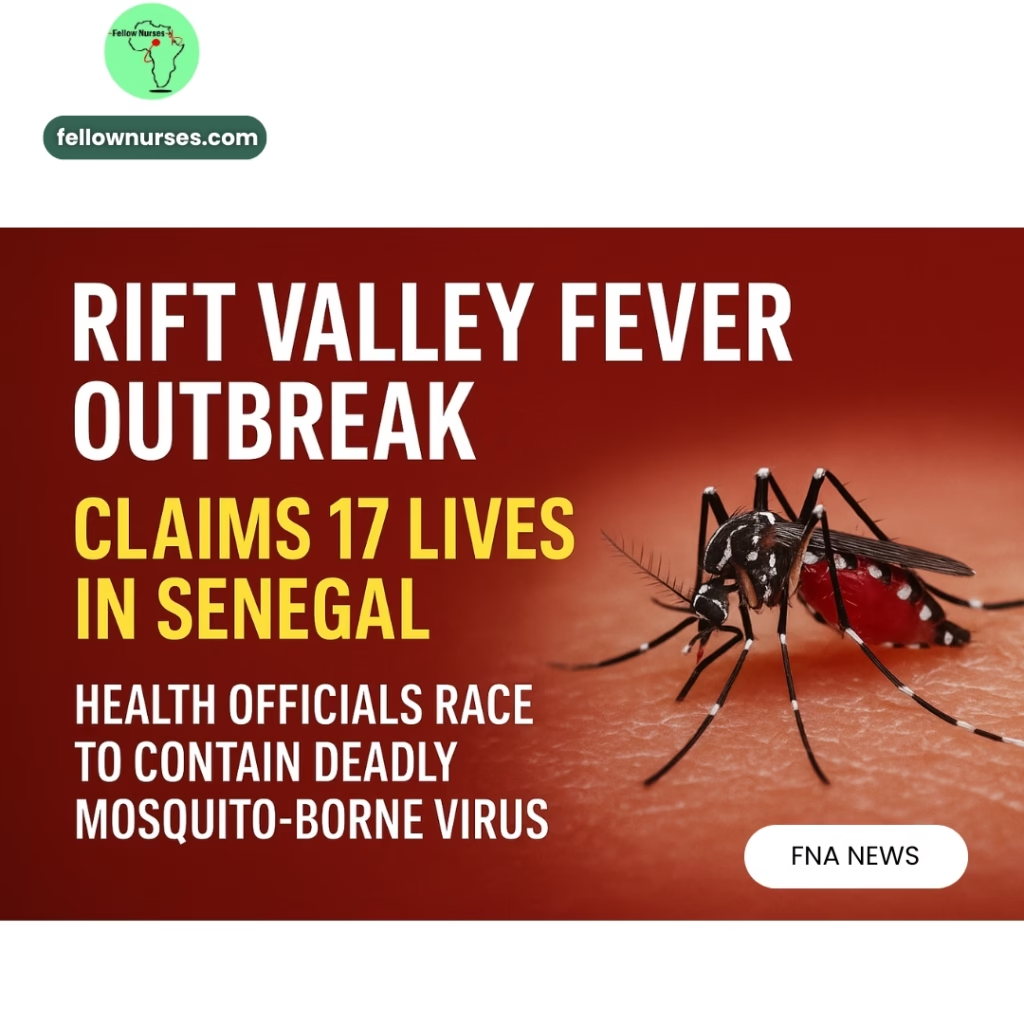Fellow Nurses Africa | Lagos, Nigeria | 11 October, 2025

The Ministry of Health confirmed that most cases have been detected in rural communities where people live in close contact with animals, a major transmission route for the virus.
Rift Valley Fever spreads primarily through mosquito bites or direct contact with infected animal blood or tissues, putting herders, farmers, and slaughterhouse workers at highest risk.
Officials have intensified vector-control measures, including the destruction of mosquito breeding sites and the use of insecticides in high-risk areas. The government has also launched public awareness campaigns urging residents to avoid handling sick or dead animals and to use mosquito protection.
Health Minister Dr. Ibrahima Sy visited affected areas earlier this week to oversee containment efforts and coordinate cross-sectoral response teams under a One Health framework, involving human, animal, and environmental health experts.
The World Health Organization (WHO) and Africa CDC are monitoring the situation closely and supporting local surveillance and laboratory testing.
While no vaccine is currently approved for human use, authorities emphasize that early detection, safe livestock practices, and mosquito control remain the strongest defenses against further spread.
Fellow Nurses Africa is the independent voice of African Nurses. We educate, inform and support the nursing profession.










